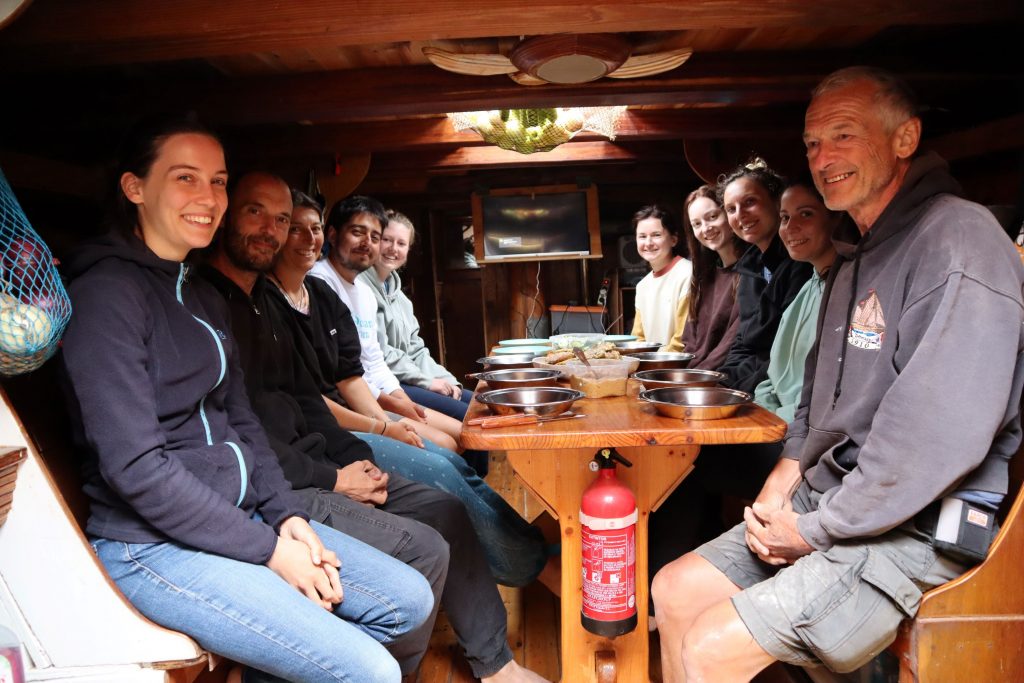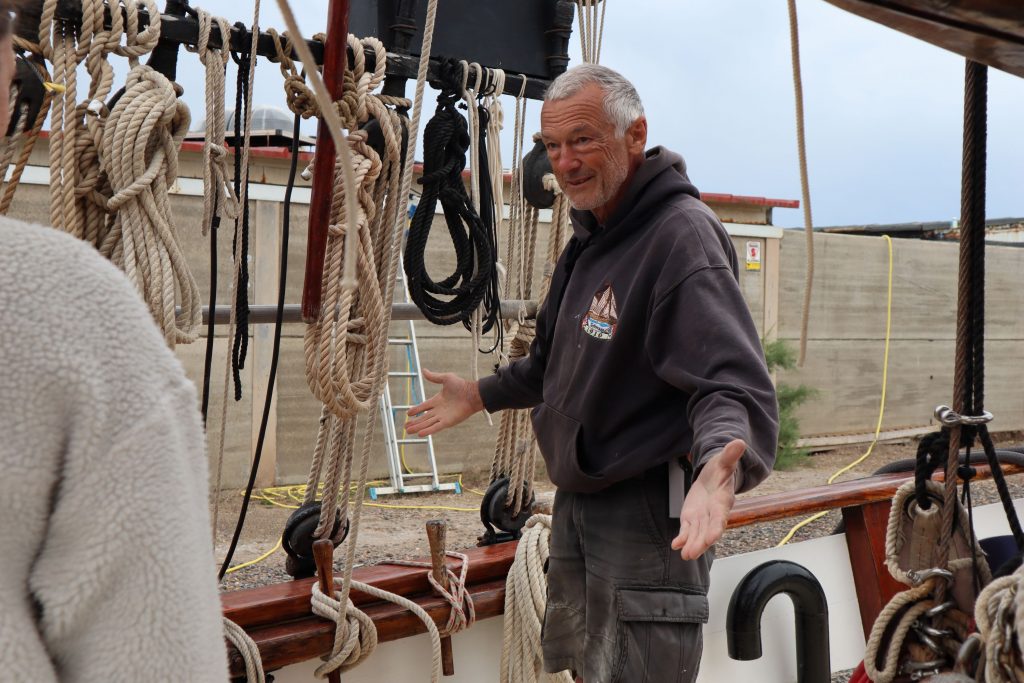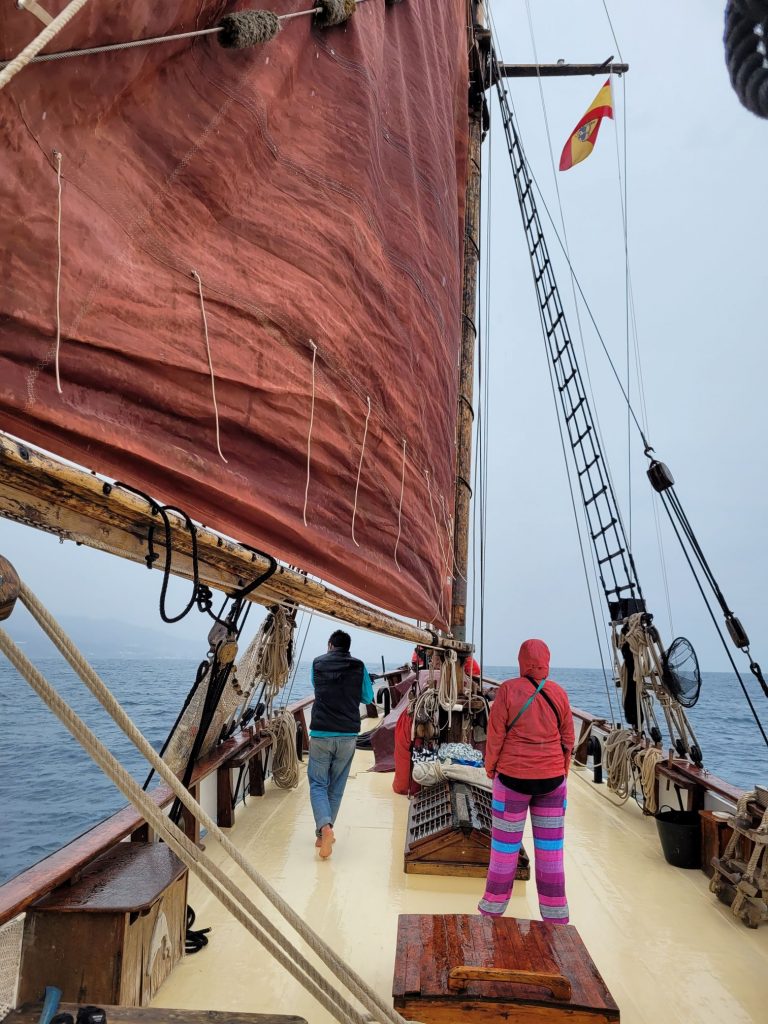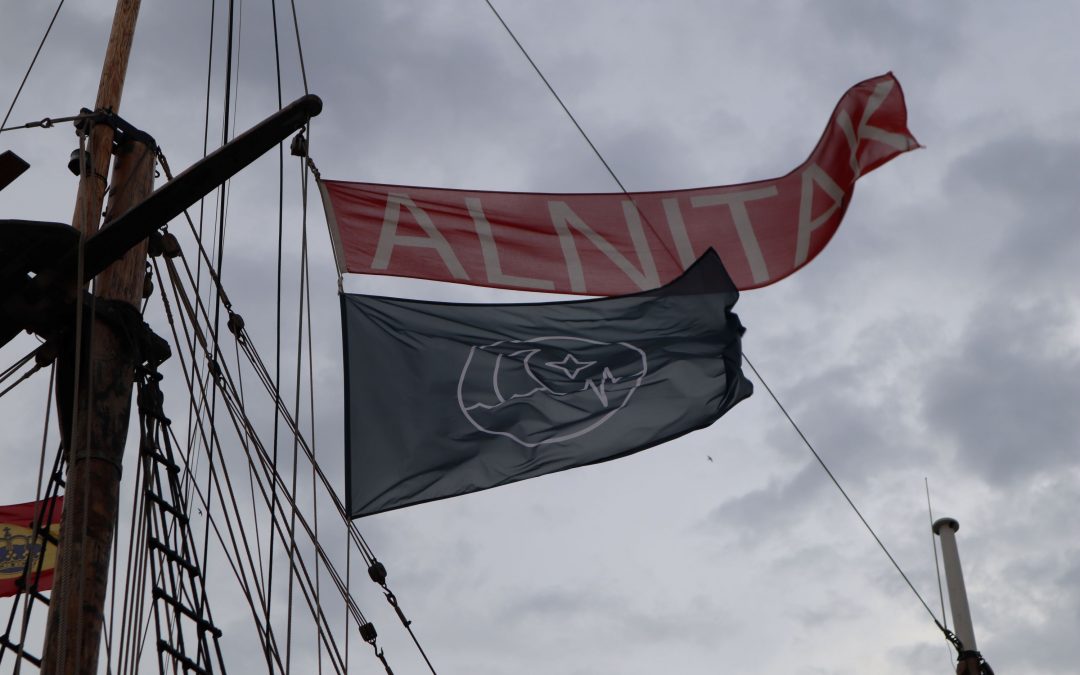Research is most useful when it has concrete implications, being used to inform policies and work alongside stakeholders — crucial to making the right decisions. This is what I discovered during a Mednight-sponsored expedition in the Alboran Sea aboard the Toftevaag, a marine research ship belonging to Alnitak. I am Camille, a 24-year-old graduate with a MA in Development Studies, and I will take you along on our exciting 11-day expedition.
Author: Camille François
Almerimar — Saturday 20th May 2023 — Marks the beginning of the second expedition of the year for Alnitak. For me, Camille, a 24-year-old graduate with a MA in Development Studies, this is also my second expedition. I now know the ropes, I understand how the crew works, I have a clearer idea of the work we are doing, and I am excited at the idea of another 11-day
expedition in the Alboran Sea. In the westernmost part of the Mediterranean Sea, the Alboran Sea is a hotspot of biodiversity. Earlier this month, I got a glimpse of this richness but also the dangers marine species face, as I was recounting in these blog articles (part 1, 2 and 3). On this expedition, I hope to dive deeper into these threats to better understand how they affect marine biodiversity, and by extension, humans. A new crew of volunteers is joining Alex, the principal investigator, Beat, the bosun, Milka, an experienced volunteer, and I. Lena and Caro are joining us from Germany for their second Alnitak expedition after a marking experience in the Balearics last year, Alina is coming straight from Finland with her gigantic camera, Swedish Theresia is bringing her contagious energy from Canada, and Xisca, who coordinates marine wildlife rescue in Mallorca and is a close collaborator of Alnitak’s, is coming to lend us a hand. We also have a new, Swiss captain, Sylvain, who is new to Alnitak and eager to learn more about navigating our century-old ship, Toftevaag.

Almerimar — Sunday 21st May 2023 — Today could have been our first day at sea, had the weather conditions allowed it. Unfortunately, the wind was too strong to go out, so we spent the day in harbour, as often happens at some point during most expeditions. On the first day, it is not a bad thing to stay docked as it allows the crew to cover the basics with the volunteers. This morning, Alex presented us the MEDTOP scientific programme. The Mediterranean top pelagics monitoring programme, run by Alnitak since 1990, combines slow sampling with volunteers with cutting-edge technology to obtain a large database, which allows to better understand the complex dynamics of the open sea, and to monitor human risks (ghost fishing, underwater noise…). The data and photos collected contribute to international marine biodiversity conservation policy and sustainable development strategies. Some MEDTOP projects include OASIS – the turtles oceanographers, MED GHOST FADs, and the Offshore Risso’s Project.
Later this day, Beat, the bosun, taught us to make marine knots. It’s an excellent skill to have on a ship, but I am not sure any of us volunteers had a natural ability for it. (Later in the expedition, seeing a knot I made, with a dry sense of humour, Beat exclaimed: “It’s not a knot: it’s a mess!”.) He also tied two volunteers together to see how much time it would take us to untangle them, and I’m glad to say we solved the challenge in minutes! In the early afternoon, Alex gave us another short presentation, on the data collection methods that we would be putting into practice at Sea and how these could later be used for tangible conservation such as Marine Protected Areas or mitigating the impacts of human activities. We then had some free time to relax and be well-rested for the following day. In the evening, the whole team gathered around in the midship (i.e. the main bedroom/“living room”) to watch a film about cetaceans, which we discussed and critiqued together, sharing our points of view in a friendly atmosphere

Almerimar — Monday 22th May 2023 — Every one of us was itching to go out at sea, so in spite of medium sailing conditions, we sailed out of the harbour early this morning, heading towards what we affectionately call “the pilot whales’ sea canyon”, after the sightings we had last week in this spot, to the west of Almerimar. Unfortunately, as the day went by, theconditions worsened, and the drizzle became a heavy rain. Rain is not necessarily an issue while we are looking for pelagics — it doesn’t necessarily reduce the visibility much; if the sea is flat, we can still spot animals. But from midday onwards, the wind picked up. Everyone on deck was cold, soaked, and we did not see any animals. That is the life of researchers, amateur or confirmed — we depend on the weather, which does not always did not treat us kindly. Despite being soaked, the rain did not dampen our spirits, and a good atmosphere reigned all day long.



